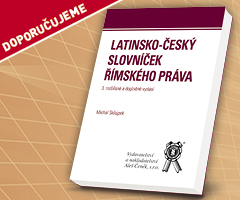Zařazeno v kategoriích: ZAHRANIČNÍ LITERATURA, Anglická
The Convention on the Rights of the Child
Kaime Thoko
ISBN
978-90-8952-113-2
EAN
9789089521132
This study looks at the protection and promotion of children's rights through a socio-legal examination of the provisions of the world's pre-eminent children's rights treaty, the Convention on the Rights of the Child. The book focuses on this singular question: Does the Convention provide a culturally appropriate framework for the protection and promotion of children's rights across different cultures? In examining this question, the book argues that the effective protection of the rights of children will not be achieved unless the substantive protections are perceived as culturally legitimate by local communities and unless the implementation procedures are aimed at enhancing such legitimacy as opposed to merely ensuring adherence to form. The book benefits from a methodology that fuses international law methods with grounded anthropological narratives. It demonstrates that far from being abstract paper prescriptions, children's rights frameworks are but a species of social and cultur.
Ostatní s tímto titulem kupují:
-
Položka byla přidána do košíku.
























